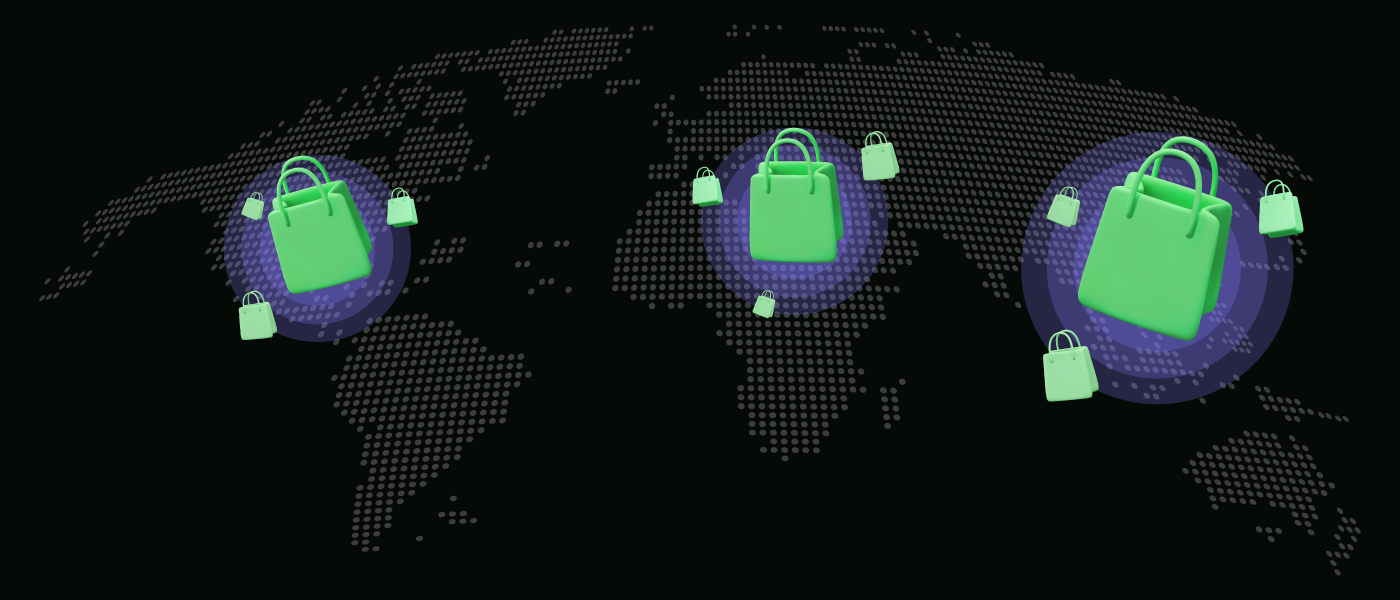In the dynamic realm of Malaysia’s burgeoning e-commerce sector, the rapid surge in online shoppers has reached a remarkable milestone, with an impressive 16.53 million individuals. This constitutes approximately 50% of the nation’s total population, a welcoming sign of people embracing digital retail. As this digital shopping landscape continues to flourish, the significance of forging resilient partnerships with wholesale suppliers takes centre stage.
This article is a comprehensive guide that navigates through the intricate landscape of wholesale suppliers within the context of Malaysia’s thriving e-commerce arena. We embark on a journey to understand the pivotal role of wholesale suppliers, unravel the strategies to effectively locate and select them.
Whether you’re an aspiring entrepreneur venturing into e-commerce or an established business seeking to optimise your supply chain, this guide equips you with the insights and tools necessary to harness the potential of wholesale partnerships in this digital age.
What is a wholesale supplier?
A wholesale supplier, a pivotal link within the supply chain, sources products in bulk from manufacturers and then distributes them to retailers at a reduced price. These suppliers essentially facilitate the seamless flow of goods from production to the hands of consumers. Their significance cannot be understated; they hold the power to influence product quality, pricing, and availability.
The importance of establishing a partnership with a reputable wholesale supplier cannot be overstressed. A reliable supplier can provide your business with a steady stream of high-quality products, enabling you to meet customer demands consistently. On the contrary, a poor choice of suppliers can lead to subpar products, delays, and even customer dissatisfaction. Thus, the process of selecting a wholesale supplier warrants meticulous attention and research.
Domestic vs. overseas suppliers
When it comes to wholesale sourcing, the dilemma often lies between domestic and overseas suppliers. Both avenues offer distinct advantages and challenges that businesses must carefully evaluate based on their specific needs and circumstances.
Domestic sourcing
Domestic sourcing involves partnering with suppliers within the country of operation – in this case, Malaysia. This approach fosters a sense of proximity, enabling direct communication, shorter shipping times, and ease of quality control. Additionally, it supports the local economy, which can be a compelling point for businesses aiming to contribute to their community. Some of the other prevalent advantages of working with Domestic Suppliers include:
- Faster Shipping and Reduced Lead Times: Proximity means quicker transit times, ensuring your products reach your shelves or customers’ doorsteps promptly.
- Ease of Communication: Overcoming language barriers and time zone differences becomes more manageable, allowing for efficient collaboration.
- Quality Control: Direct oversight of manufacturing and production processes facilitates maintaining consistent product quality.
- Supporting Local Economy: Aligning your business with local suppliers can bolster community ties and contribute to regional economic growth.
Despite these advantages, domestic suppliers may also encounter problems of higher labour and production costs and restrict product diversity due to a lack of materials. Scalability can also become a cause for concern since domestic suppliers work with the resources of the country they operate within.
Experience fulfillment by Locad today!
Overseas sourcing
Overseas sourcing involves partnering with suppliers from other countries, often tapping into cost-effective manufacturing hubs. Countries such as Singapore, the United States, China and Japan remain some of the most popular trading partners with Malaysia.
This approach can grant access to a wider array of products and potential cost savings. Overseas sourcing offers companies the opportunity to access a wide range of benefits, including:
- Cost Efficiency: Lower manufacturing and labour costs in some regions can result in more competitive pricing for your products.
- Product Diversity: Access to a broader range of products, materials, and specialised manufacturing capabilities can enrich your offerings.
- Scalability: Overseas suppliers are often equipped to handle larger order volumes, accommodating business growth.
However, overseas manufacturers also bring with them an array of issues such as an extended lead time, quality control complexities and language barriers, as well as other cultural differences. Nevertheless, the pros often far outweigh the cons, making them a preferred option.
Where to find a reputable wholesale supplier
Finding a reputable wholesale supplier is of utmost importance, yet it remains one of the most intricate and complex processes. However, knowing where to look for the right supplier can often help unearth some of the most valuable partnerships. Here are some places a business in Malaysia can trace wholesale suppliers.

- Online Directories: Digital directories like ThomasNet and MFG.com streamline supplier searches with profiles, contacts, and reviews.
- Online B2B Marketplaces: Platforms like Alibaba connect you to diverse suppliers and products, requiring thorough vetting.
- Industry Associations and Chambers of Commerce: Associations provide curated directories, events, and referrals to reliable suppliers within your industry network.
- Supplier Databases and Directories: Sourcify and Kompass offer verified lists showcasing capabilities, certifications, and testimonials.
- Referrals: Leverage referrals from colleagues, associates, and industry peers for firsthand insights.
- Publications and Magazines: Trade publications offer supplier showcases, directories, and endorsed selections for informed choices.
Things to note when choosing a supplier
Choosing the right supplier for your e-commerce store is a pivotal decision that can steer your business toward prosperity or pitfalls. We discuss essential considerations to ensure you make an informed and strategic choice.
- Always Have a Backup Supplier
Unforeseen challenges like delays in shipment delivery and gaps in the supplier’s supply chain can often disrupt supplier relationships in e-commerce. Therefore, having a backup supplier at your disposal serves as a safety net, ensuring your operations continue smoothly even amidst disruptions. Much like diversifying your investment portfolio, diversifying your supplier network safeguards against potential stockouts, production delays, or shifts in market conditions fortifying your business against uncertainties, and fostering resilience and uninterrupted service to your customers.
- Source from Local Brick-and-Mortar Stores
Exploring local brick-and-mortar stores for sourcing offers unique advantages. Proximity enables direct interactions, allowing you to assess product quality firsthand, negotiate terms, and establish a personal rapport leading to more flexible arrangements, quicker issue resolution, and tailored solutions. Collaborating with local Malaysian suppliers also fosters community support, promotes sustainable business practices, and reduces environmental impact through minimised shipping distances.
- Request Quotes and Product Samples
Requesting quotes and samples before sealing the deal is a wise step in the supplier selection process. Quotes allow you to compare pricing, negotiate terms, and align offerings with your budget. Samples, on the other hand, allow you to assess product quality, packaging, and adherence to specifications. This firsthand evaluation ensures that the products meet your standards and resonate with your brand identity.
How to Find Suppliers for E-commerce Store
Learn how you can source your products or find suppliers for e-commerce business….
Email Templates to Contact an E-commerce Supplier
Now, e-commerce suppliers in Malaysia are galore. However, not all of them will fit the box for your business. Hence, the first course of action would be to research and shortlist all of the suppliers who service your domain. Post that, you need to reach out to them either via phone call, a website, or an email to receive all the necessary information to determine whether they are the correct fit for you.
Here are two email templates to help you get started!
Template 1:
Subject: Inquiry Regarding Wholesale Partnership Opportunity
Dear [Supplier’s Name or Company Name],
I hope this email finds you well. My name is [Your Name], and I am the [Your Position] at [Your Company Name], an e-commerce business specialising in [Your Product Category]. We are currently looking to expand our product range and explore potential partnerships with reputable suppliers.
After thorough research, we came across your company and were impressed by your offerings and reputation in the industry. Your products align perfectly with our target market, and we believe that a partnership with your company could be mutually beneficial.
We would appreciate the opportunity to discuss the possibility of working together and would like to inquire about your wholesale pricing, minimum order quantities, and any other terms and conditions. Additionally, if you could provide us with a product catalogue or a list of available products, it would greatly assist us in our evaluation.
Please let us know a convenient time for a call or if you prefer to communicate via email. We are eager to learn more about your products and explore how we can collaborate effectively.
Thank you for your time and consideration. We look forward to the possibility of working together and the opportunity to contribute to each other’s success.
Best regards,
[Your Name] [Your Company Name] [Your Email Address] [Your Phone Number]Template 2:
Subject: Request for Quotation and Product Samples
Dear [Supplier’s Name or Company Name],
I hope this message finds you in good health. I wanted to follow up on my previous email regarding our interest in establishing a partnership with your esteemed company.
Having researched your products and reputation, we are eager to move forward and potentially incorporate your products into our e-commerce offerings. To proceed, we kindly request the following information:
1. A detailed quotation for your products, including pricing, minimum order quantities, and any bulk purchase discounts available.
2. If possible, we would greatly appreciate product samples to assess quality and compatibility with our brand standards. Please let us know if there is a process for requesting samples and associated costs.
3. Any additional information about your payment terms, lead times, and shipping options, especially if you cater to international orders.
4. A product catalogue or updated list of available items to aid in our product selection process.
We understand your time is valuable, and we genuinely appreciate your consideration of our request. If you have any specific questions or require further information about our business, please do not hesitate to ask.
We look forward to your response and the possibility of forging a successful partnership. Thank you for your attention and prompt action on this matter.
Warm regards,
[Your Name] [Your Company Name] [Your Email Address] [Your Phone Number]Wrapping up
The supplier-customer relationship is more than transactions; it shapes e-commerce. Harmonious collaboration enhances communication, processes, and customer experiences, fostering loyalty. Through this blog, we have explored diverse avenues like trade shows and online directories to discover reputable suppliers in Malaysia that offer unique value propositions.Choosing a supplier extends beyond transactions. Reliability boosts product quality, efficient service, and customer satisfaction. A strong supplier-customer bond strengthens brand reputation, scalability, and business integrity, fueling e-commerce success. In this narrative, suppliers stand as unsung heroes in your journey toward triumph.
How can I find a supplier for my business?
Research online marketplaces, attend trade shows, utilise industry directories, and seek referrals to discover potential suppliers for your business.
How do I contact a supplier?
Reach out through email, phone, or their website’s contact form. Introduce your business, express interest, and inquire about their products, pricing, and terms.
Is a manufacturer also a supplier?
A manufacturer produces goods, while a supplier can provide various products, including those from multiple manufacturers. Not all manufacturers are suppliers, but some suppliers might also manufacture.
Who is an e-commerce vendor?
An e-commerce vendor is a business or individual selling products or services online through platforms like websites, marketplaces, or social media, catering to a virtual customer base.












